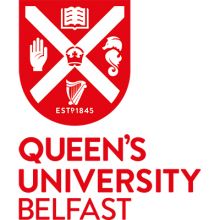The decision by Northern Ireland’s government to end funding for the George J. Mitchell Scholarship program is an unfortunate consequence of the ongoing budget impasse between the Northern Ireland executive and the British government.
The programme was created to introduce future American leaders to Ireland through one year of graduate study at institutions of higher learning on the island, including Queen’s University Belfast and the University of Ulster in Northern Ireland. To put the popularity of the program into perspective, in the past three years, of the 10 people lucky enough to be offered both a Rhodes and Mitchell interview, eight opted for the Mitchell.
A few years ago, US presidential candidate Hillary Clinton ended US government support for the program with her State Department officials informing us that they didn’t care about Europe any more.
David Rothkopf, the editor of the Foreign Policy Group, recently wrote a piece entitled Does America Need New Special Relationships? In it, he describes America’s relationships with its traditional allies as being “in a dangerous state of disrepair” and claims the “partnerships have grown increasingly obsolete and aimless.” Rothkopf writes that the UK’s “influence within Europe (and in Washington) has been greatly eclipsed by Germany and France” and asks if the US shouldn’t rather be cultivating new “special relationships with Australia and India.”
The Obama Administration’s pivot to Asia ignores the fact that young Americans wishing to study abroad largely prefer to study in Europe. This need not be a zero-sum game – for example, several Mitchell Scholars who studied conflict in Ireland and Northern Ireland have Arabic skills and are now working for the State Department in places, and on issues, the administration does care about.
There are now more than 180 Mitchell Scholars. As the program is only in its fifteenth year, our oldest Scholars are only in their early 40s. Still, their impact is already being felt. One Mitchell Scholar who studied at Queen’s has leveraged her degree program in international politics to now work for the US government as a litigator before international tribunals and as an advisor in international negotiations.
For a recent project, the scholar built upon relationships begun during her time in Northern Ireland to design a collaborative US-EU project that she and her colleagues will lead on behalf of the United States. She engaged her Mitchell-year contacts to seek to partner with colleagues in Ireland and the UK on the project that, the team hopes, will enhance international co-operation on issues common to both sides of the Atlantic.
The US and Europe should be doing more to increase the number of our citizens studying abroad. These relationships promote greater understanding and international cooperation. In the case of Northern Ireland, if its leaders - government, corporate or individual - care about ties with future generations of American leaders, they will have to step in. Northern Ireland can no longer count on the British or US governments to make these ties happen.
With the support of the government of Ireland and others, in October we will select our usual number of Mitchell Scholars but study in Northern Ireland will unfortunately not be an option. Hopefully, it will be back soon.
Trina Vargo is the founder and president of the US-Ireland Alliance, which operates the Mitchell Scholarship programme.
Register to continue
Why register?
- Registration is free and only takes a moment
- Once registered, you can read 3 articles a month
- Sign up for our newsletter
Subscribe
Or subscribe for unlimited access to:
- Unlimited access to news, views, insights & reviews
- Digital editions
- Digital access to THE’s university and college rankings analysis
Already registered or a current subscriber? Login






